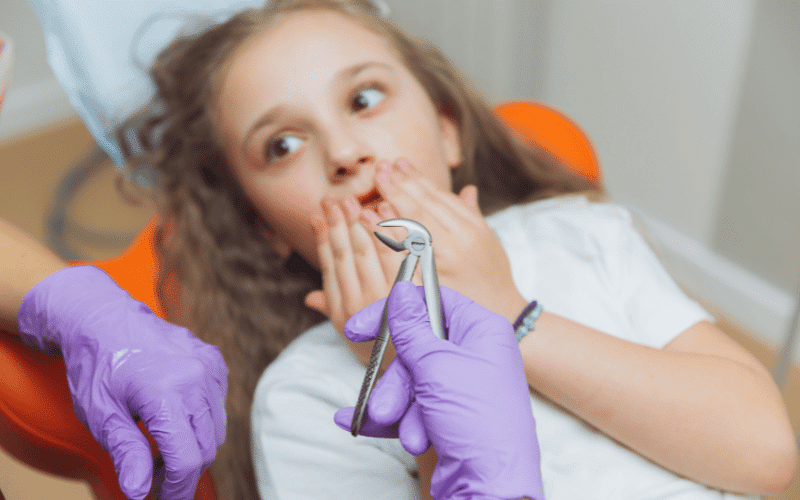A bright, healthy smile is a source of pride for children of all ages. But for some kids, the path to a gleaming grin can be fraught with anxiety. Dental anxiety in children is a common concern, affecting millions each year. The unfamiliar sights, sounds, and sensations of a dental office can be overwhelming, leading to tears, tantrums, and a deep-seated fear of the dentist. This blog post is here to help! We’ll explore the reasons behind dental anxiety in children, delve into calming techniques, and discuss special care options available for anxious young patients. By understanding the root of your child’s fear and working with a dedicated pediatric dentist, you can ensure positive dental experiences that set the stage for a lifetime of good oral health.
Why Do Children Get Dental Anxiety?
Dental anxiety in children can stem from a variety of factors. Here are some common culprits:
- Fear of the unknown: The dental environment can be unfamiliar and intimidating for kids. The whirring of drills, the bright lights, and the strange instruments can all contribute to a sense of unease.
- Fear of pain: Even the thought of a potential poke or prod can be enough to trigger anxiety in some children.
- Negative past experiences: A previous unpleasant dental experience can leave a lasting impression, creating a fear of future visits.
- Sensory overload: The sights, sounds, smells, and tastes associated with dental care can be overwhelming for children with sensory sensitivities.
- Separation anxiety: Young children may be anxious about being separated from their parents during the dental appointment.
Calming the Jitters: Techniques for a Positive Dental Visit
Once you understand the root of your child’s anxiety, you can use these techniques to create a more positive dental experience:
- Preparation is key: Talk to your child about what to expect at the dentist’s office. Use age-appropriate language and picture books to familiarize them with the instruments and procedures.
- Role-playing can help: Practice opening your mouth wide, counting teeth, and letting someone gently touch their teeth with a toy toothbrush.
- Positive reinforcement is your friend: Praise your child for their bravery and celebrate their accomplishment after a successful visit.
- Choose a pediatric dentist: Pediatric dentists specialize in treating children and have the experience and patience to make your child feel comfortable. Look for a dentist with a welcoming atmosphere and a friendly staff.
- Be a calming presence: Your presence and reassurance can significantly impact your child’s anxiety levels. Hold their hand, talk to them in a soothing voice, and be patient with any tears or fears.
- Consider relaxation techniques: Deep breathing exercises, counting sheep, or listening to calming music can help your child manage their anxiety.
Special Care Options for Anxious Children
For some children, more than the best preparation and calming techniques might be needed. In these cases, pediatric dentists offer special care options to ensure a comfortable and stress-free experience:
- Tell-Show-Do: This technique involves explaining the procedure to your child beforehand, then demonstrating it on a model before finally performing it on their teeth.
- Nitrous oxide (laughing gas): This safe and effective gas can help your child feel relaxed and giggly during their appointment.
- Oral conscious sedation: This medication helps your child feel tired and less anxious throughout the procedure.
- General anesthesia: In rare cases, general anesthesia might be necessary for children with severe anxiety or those who require complex dental work.
By addressing your child’s dental anxiety early on, you can set them up for a lifetime of positive dental experiences. Remember, a healthy smile not only boosts confidence but also contributes to overall health and well-being. With a little understanding, some calming techniques, and the right dental care team, you can turn those sensitive smiles into bright, happy grins!


